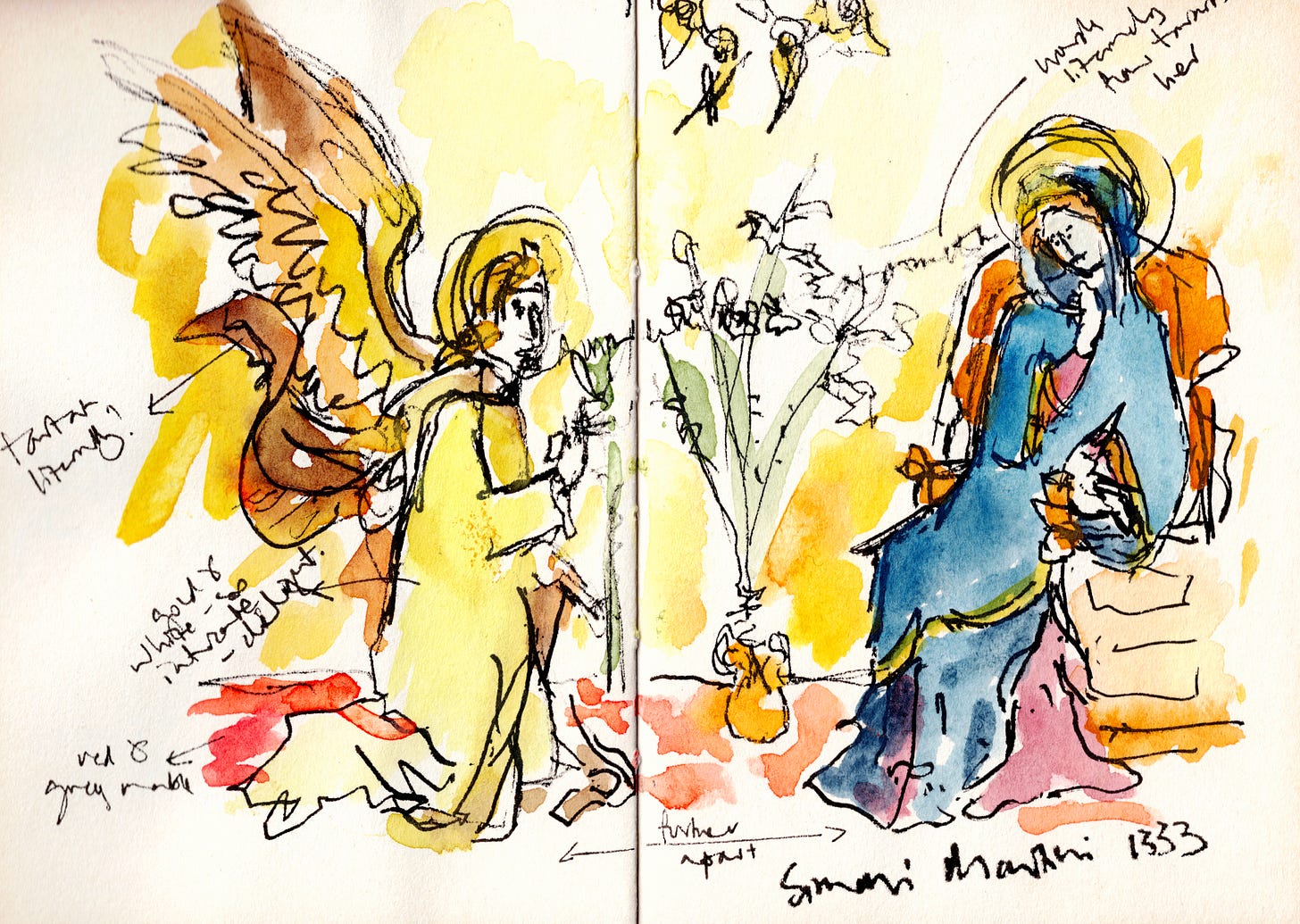
Still through the cloven skies they come
with peaceful wings unfurled,
and still their heavenly music floats
o'er all the weary world;
above its sad and lowly plains,
they bend on hovering wing,
and ever o'er its Babel sounds
the blessed angels sing.
It Came Upon a Midnight Clear, Edmund H. Sears (1849)
This time 5 years ago I was a little obsessed with angels. Particularly these ones, that ‘bend on hovering wing’ to sing peace and goodwill over our weary world.
I spent Christmas in Cornwall that year, with my beloved friends
and . In the midst of one our expansive conversations, looking out to sea, I can well remember an insight landing on me, almost like an audible voice:‘You will all need to learn to listen deeply this year...deep enough that you hear the angels sing’.
I didn’t really understand what it meant at the time. Did it mean literal angels? I knew many people that thought they had been encountered by angels. Some described magnificent creatures with eyes flowing with the vitality of waterfalls. Others were simple presences that could easily be mistaken for humans, but always achieved some impossible task.
What was going to happen in the world that would mean we’d have to search that much deeper for hope? How do we listen deeply? Is it to ourselves? To the earth? To the sky?
Strangely the Queen, in her Christmas Day speech that day, also brought in those particular Midnight Clear angels.
A few months later Covid announced its arrival in the UK and, since then, that kitchen insight has become only more resonant. Slowly unfolding its meaning.
Looking back I realise that I experienced it as directive. A Deep calling to Deep moment.
And today, as this strange, battering year draws towards to its close, and the sad plains of our weary world groan, I, like many of you perhaps, desperately need to hear that song anew.
I am depleted.
I know I’m not alone in this. I know it’s common for this time of year. And that it’s nothing compared to the state many around the world...many on my doorstep...find themselves in this Christmas.
But I’ve been scraping my way through the last months. Forcing myself to complete commissions before Christmas. Making deadlines by a whisker. Failing to get excited about events that I have been part of dreaming up. Letting people down. Excusing myself from social events. Not finding head or heart space to share anything here at The Tuning Fork. Lacking the inspiration to counter the despair I feel at much of what is going on in the world.
Mustering enough enthusiasm to enthuse others has felt like pulling my own nails off.
Self esteem has been low. Self condemnation high.
Selah.
And when I stop to ponder (as I did yesterday morning, looking out to a returning sun over a freshly washed beach) why I feel so depleted, my body tells me one thing plainly.
I have, for this last year, practiced such an intentional ‘no’ that I’ve forgotten my own ‘yes’.
I determined at the start of the year that I would try hard not to hate anyone. That I would not default to scapegoating. That I would resist polarisation. That I would choose to lament all suffering, not just that of the people I love, or the ‘side’ I can most easily support. That I would develop my capacity to see from myriad viewpoints. Let things remain complicated. Listen for truth in multiple narratives and encourage others to do the same.
These have been my values for a long time. But this year these practices have required particular intention, as the pull towards over simplistic thinking and rhetoric has been strong (and loud) from every direction.
I haven’t have done a great job of it. I’ve wondered often if I’m just losing my moral rooting and have become a chameleon. But I have kept trying to resist the temptation to fall in to ‘us’ and ‘them’ and, as a result, have been part of an unusual mix of communities through the year. In conversation with many people who would not want to be in the same room as each other.
But, as I have experienced opposing narratives becoming only more self-assured of their rightness, I have felt my body, in its attempt to stay connected, stretch and contort in ways that have made it hard to breathe. Such a posture has begun to stretch the air out of my lungs. The strength out of my arms. And the hope out of my heart.
I agree with philosopher-theologian René Girard that the default practice of humanity is to scapegoat.
And I come to the end of a year of trying to resist such a practice disillusioned, hopeless, angry, lacking in vision and pretty despairing as to the capacity of humans (including myself) to host complexity.
I am tired.
I don’t want to continue like this.
But I also don’t want to succumb to thinking that I am ‘right’. To become an ‘us’ against a ‘them’. And if I’m not in relationship and conversation with people different to me, how will I maintain a deeper perspective?
I have been practicing curiosity. And I have been practicing lament. But something has been missing.
I am in need of angels - better translated ‘messengers’ when they appear in the Hebrew Bible. Such messengers can be natural or supernatural.
And I was encountered by one last week.
My friend Laura took me to watch this exquisite film, Van Gogh: Poets & Lovers at the Towner Gallery in Eastbourne.
It guides you through the current exhibition of Van Gogh’s work at the National Gallery in London, all of which is from a particular period of intense creativity in the South of France in the late 1880s - the years running up to his death.
At the end of the film, having spent 90 minutes absorbed in tracing brushstrokes, feeling the vibration of colours, encountering his hunger for truth, his deep conviction of his vocation, his costly belief that only beauty can save the world, and in the company of an audience that barely made a sound, my friend and I couldn’t move. As people left the cinema, we stayed put, and for a moment I let the previously unnoticed royal blue of the art-cinema walls sing to me.
I reached for my friend’s hand as we both quietly wept.
Everything in Van Gogh’s work is alive. And the cost of that aliveness was too great for him. In 1890 he took his own life.1
A number of precious people in my life have killed themselves. Each of them deep and wild and hungry for truth and beauty. My friend is a therapist and supervises a large team of precious whole-hearted people. That week she had been on suicide watch.
When we eventually spoke, we found ourselves honouring both the devastation and the dignity of one so intoxicated with beauty choosing to end their life. The cost paid by those living with thin skins. Feeling the world. Its glory and its horror. Not letting themselves hide. Not being able to perhaps. Singing with every morsel of their being, especially in moments of deepest despair and distress. Some of Van Gogh’s most exquisite (and prolific) work was created in the weeks before his death, whilst living in a mental asylum.
On Thursday evening I had the privilege of experiencing those works in the flesh. And I could have stood in front of this painting of the ‘Poet’ until the gallery closed. It’s one of the first paintings you see, and I kept coming back to it.
Van Gogh wrote that he wanted his paintings to offer consolation, like music.
This painting consoled me.
Looking in to his eyes, you don’t just see the pain of the world. You see a man resigned to the fact that this is his vocation. To be alive to the world in a particular way, and to share his experience of it with such honesty...such innate dignity...that it draws others in to that aliveness.
Van Gogh’s sitter for this painting was Belgian artist Eugène Boch, whose face reminded Van Gogh of Dante. But I experienced it as a self-portrait of the artist.
And I experienced said artist, this last week, as an angel. Witnessing the pain of the world. Bending down on hovering wing to sing through it. To speak of Beauty and to lure us in to communion with it.
O rest beside the weary road,
and hear the angels sing!
I have spent the last year bearing witness to a lack of Beauty in the ways we are choosing to understand the world and engage with one another.
I have experienced much Truth. And much Goodness. But little Beauty.
And by Beauty I do not mean prettiness, or loveliness. Beauty has justice at its core: ‘the ethical does not then question the legitimacy of beauty, rather does it reveal itself as beauty’s inner coordinate axis’.2
And, as (dead) German Catholic theologian Hans Urs Von Balthasar reminds us, when Beauty is separated from these ‘two sisters’, she ends up taking them along with her:
We no longer dare to believe in beauty and we make of it a mere appearance in order the more easily to dispose of it.
Our situation today shows that beauty demands for itself at least as much courage and decision as do truth and goodness, and she will not allow herself to be separated and banned from her two sisters without taking them along with herself in an act of mysterious vengeance.
We can be sure that whoever sneers at her name as if she were the ornament of a bourgeois past -- whether he admits it or not -- can no longer pray and soon will no longer be able to love.
Hans Urs von Balthasar, Seeing the Form
I have learnt this year that if I am going to continue to try to posture myself in some non-space outside of ‘us’ and ‘them’, I need to drench myself in Beauty. Eros. Desire.
To have a hope of resisting the practice of scapegoating the ‘other’ you do indeed need to make a commitment to be curious, and to lament.
But there is a third requirement. And that is Desire. You need to know what you are saying ‘YES’ to...what it is that you desire...if you are to have a hope of practicing a sustainable ‘NO’.
Van Gogh’s work is dripping with ‘YES’. Is rich in Desire.
And for a moment I forgot my own ‘YES’. Even though it lights my sitting room most evenings.
I need to spend more time with those brave enough to encounter the world naked. Who long to know, in the intimate, biblical sense of the word (yada (ידע), which also means to make love).
The prophets, the artists, the poets, the seers, the mystics.
Rather than being tired, I think I am thirsty.
In my Welcome to the Tuning Fork piece I speak of wanting my writing to be a receptacle that people can use to draw from the deep well of the Jesus traditions.
Well...and well indeed...if that is the case then I realise that I will be drawing with them. I have changed the capital letters of THE TUNING FORK to lower case (to be fair it was only in upper case because the U looks more like a tuning fork). Taken some of the pressure off myself to be sharing Beauty from the tradition and instead, through the year ahead, will be seeking it. Listening for it.
I hope some of you will join me.
P.S. Shepherd’s encountered by angels:
Now there were in the same country shepherds living out in the fields, keeping watch over their flock by night. And behold, an angel of the Lord stood before them, and the glory of the Lord shone around them, and they were greatly afraid. Then the angel said to them, “Do not be afraid, for behold, I bring you good tidings of great joy which will be to all people. For there is born to you this day in the city of David a Savior, who is Christ the Lord. And this will be the sign to you: You will find a Babe wrapped in swaddling cloths, lying in a manger.”
And suddenly there was with the angel a multitude of the heavenly host praising God and saying:
“Glory to God in the highest,
And on earth peace, goodwill toward men!”
So it was, when the angels had gone away from them into heaven, that the shepherds said to one another, “Let us now go to Bethlehem and see this thing that has come to pass, which the Lord has made known to us.” And they came with haste and found Mary and Joseph, and the Babe lying in a manger. Now when they had seen Him, they made widely known the saying which was told them concerning this Child. And all those who heard it marveled at those things which were told them by the shepherds. But Mary kept all these things and pondered them in her heart. Then the shepherds returned, glorifying and praising God for all the things that they had heard and seen, as it was told them.
(Luke 2:8-15)
Some think he was accidentally shot by some local youths and chose to give the impression that he’d done it himself because he was wanting to die anyway.
Hans Urs von Balthasar, Seeing the Form




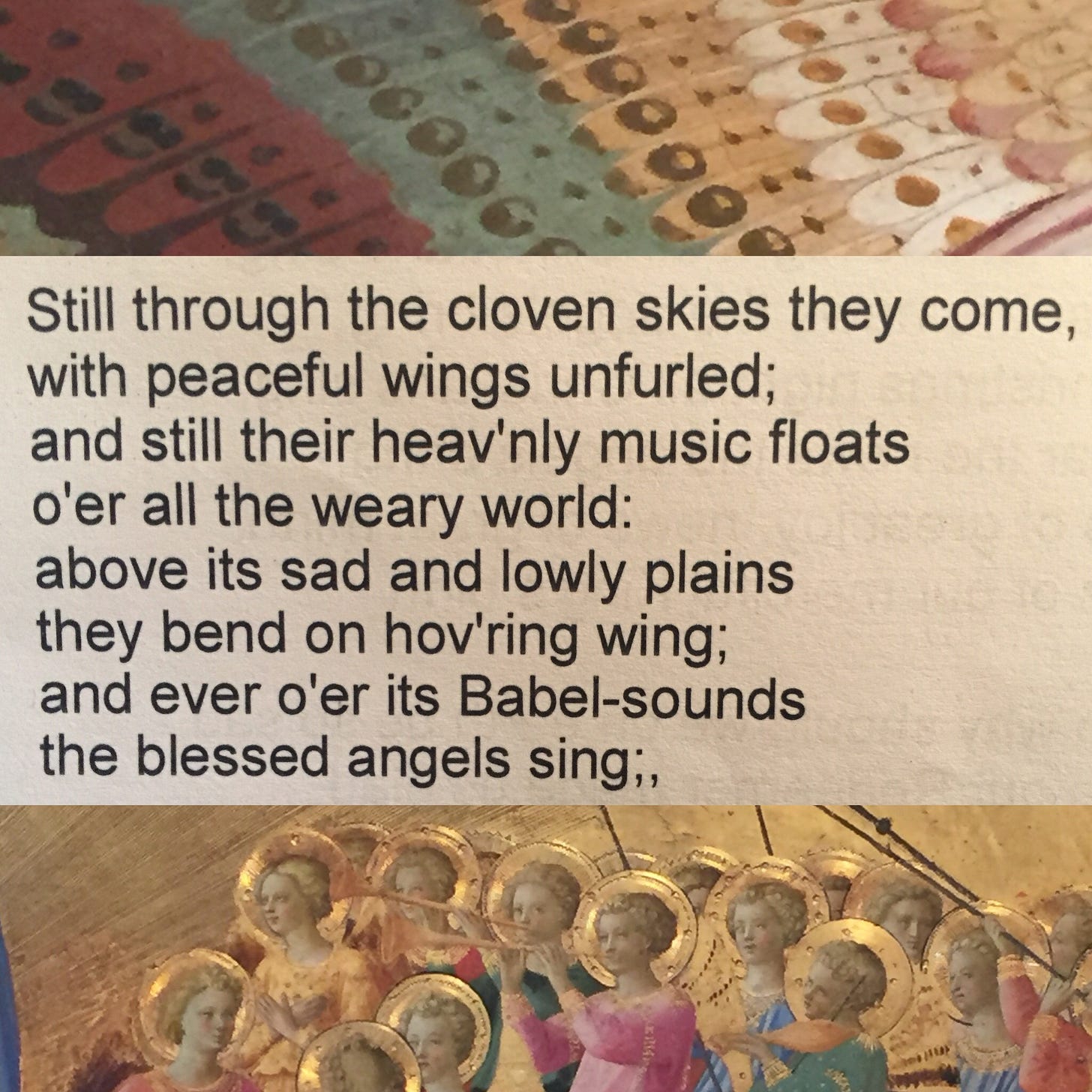
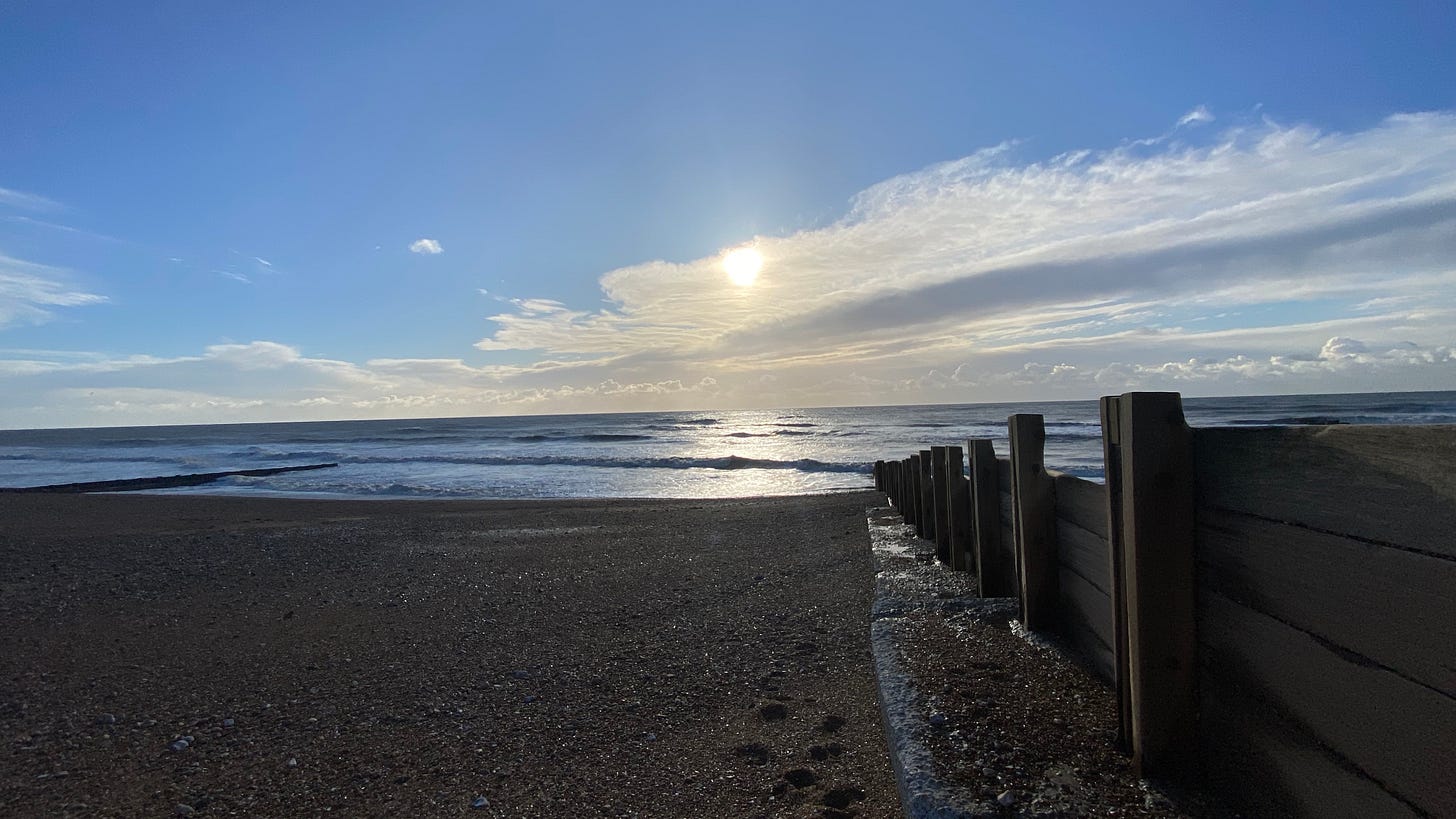
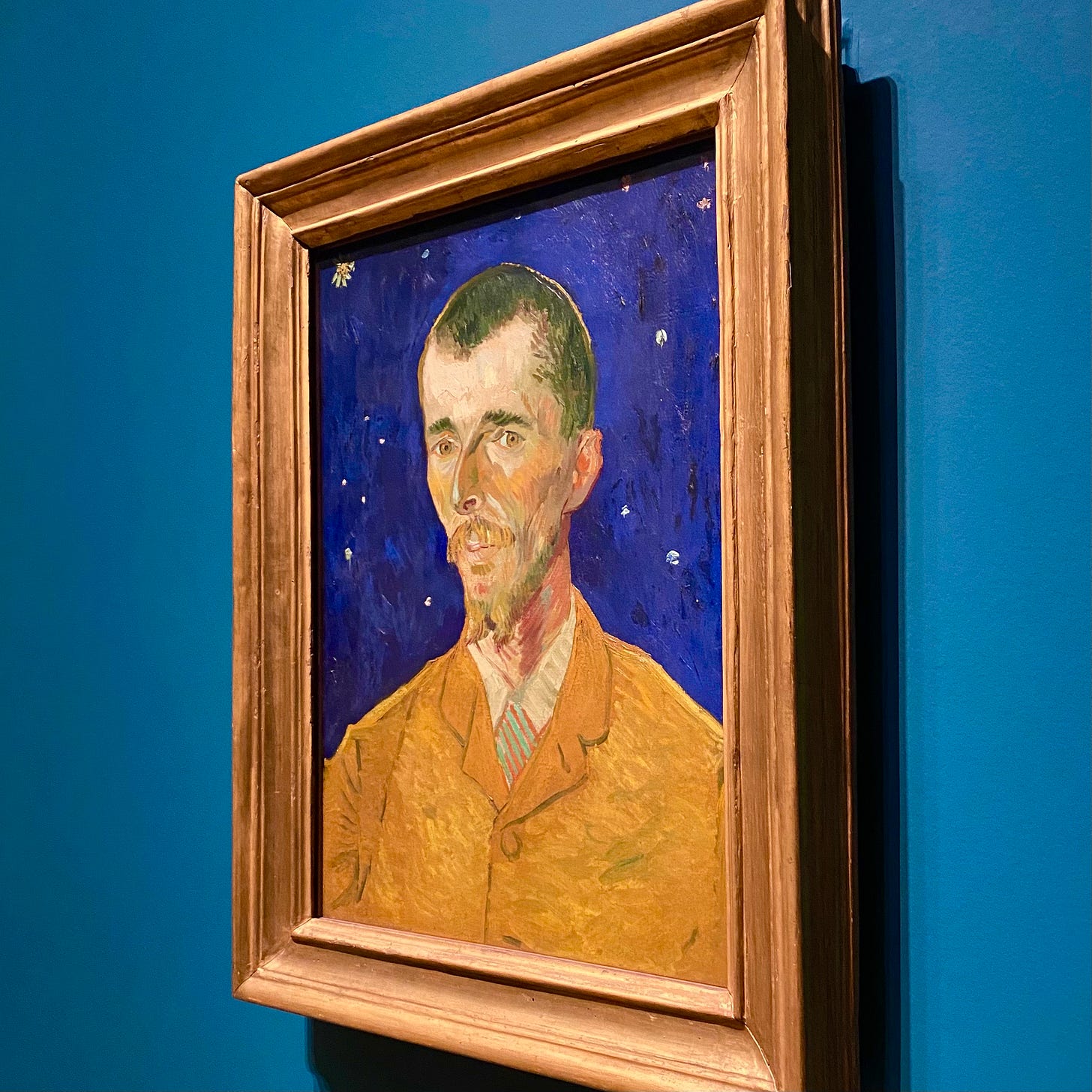

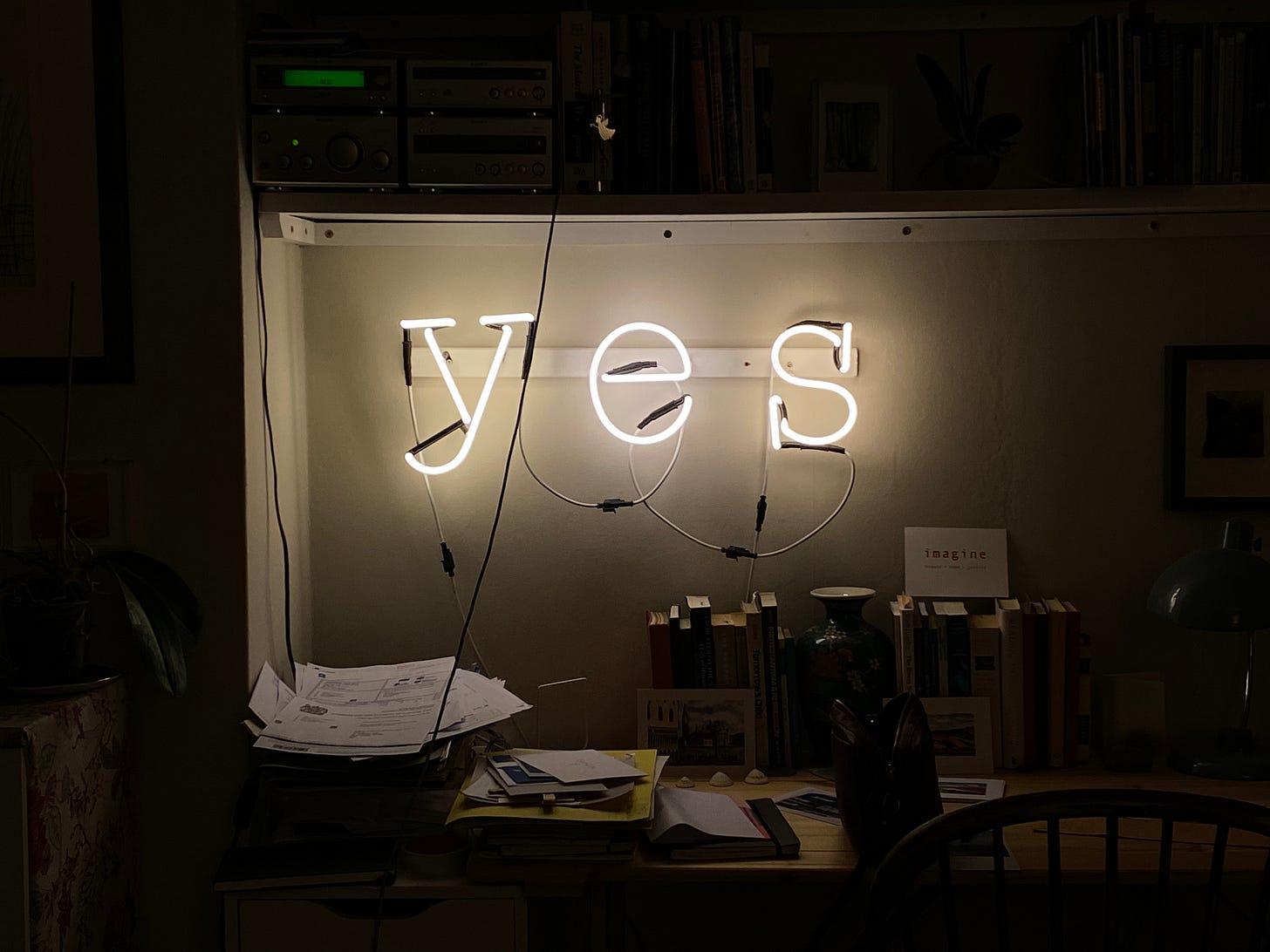
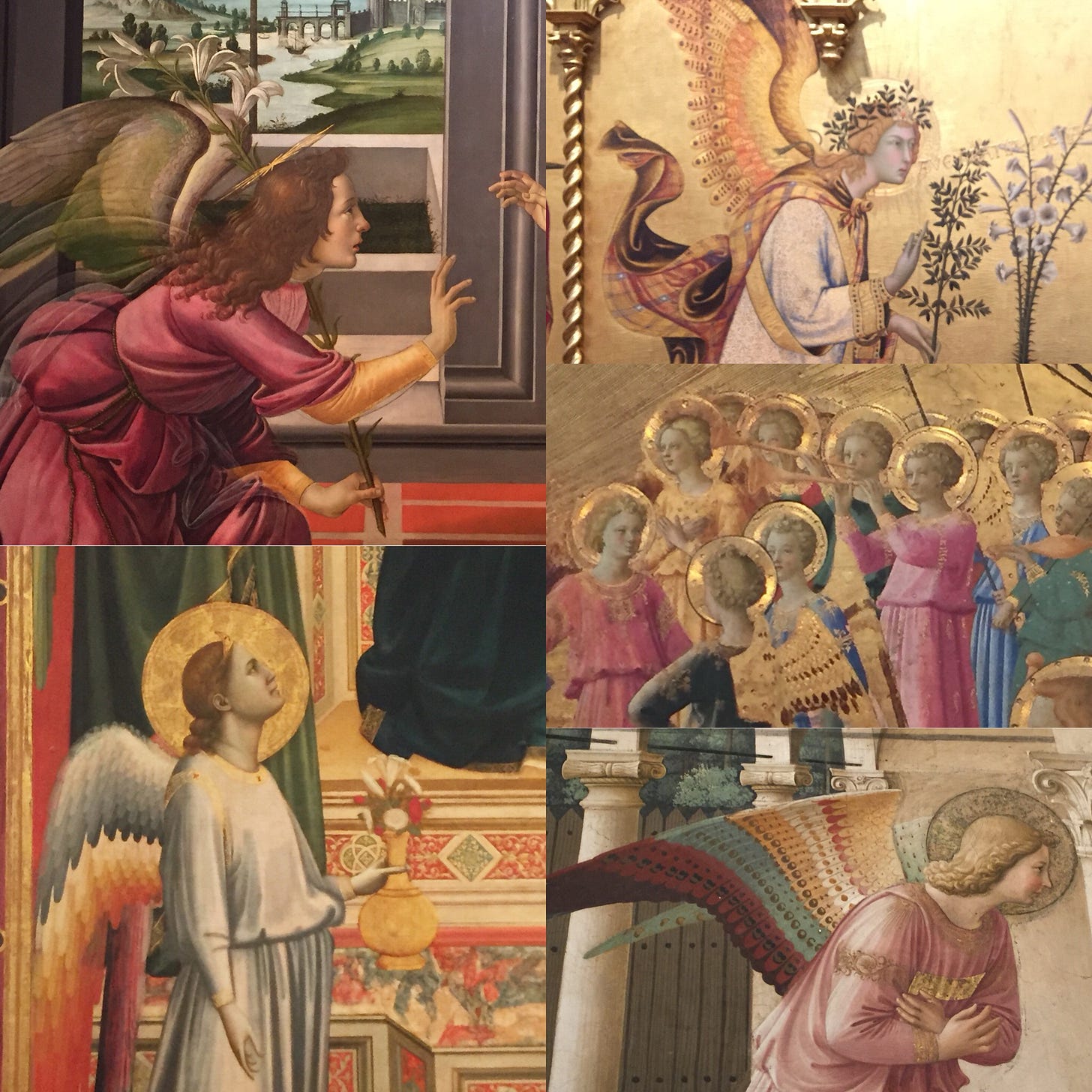
Thanks for sharing this. You have eloquently put words to how I am feeling at this point in the year. This sentence leapt out for me.
'I have learnt this year that if I am going to continue to try to posture myself in some non-space outside of ‘us’ and ‘them’, I need to drench myself in Beauty. Eros. Desire.'
Finding non-space outside familiar paradigms but inside some kind of connection feels important for me right now
Thank you for this. I read your piece because the image of the Annunciation was very close to what I saw in my mind in St Bride's the other week while I was listening to the choir. Like you, I have been trying to practice the upholding of complexity and connection across divides this year, and I can deeply identify with the fatigue induced by the constant labour of that practice. That effort and the toll it takes is why people retreat into simple stories, I think: but those simple stories are not the truth. Beauty fills the well, but I have also found retreat to be necessary this year. Solitude, calm, quiet are the antidote to engagement.